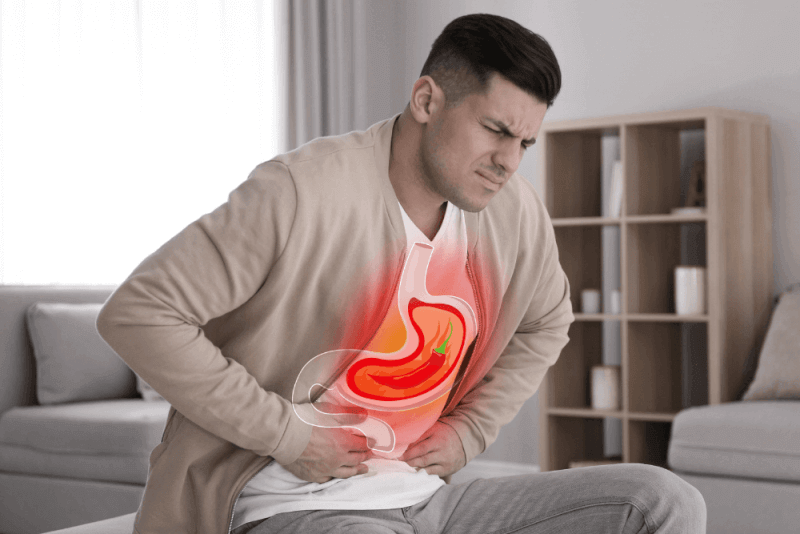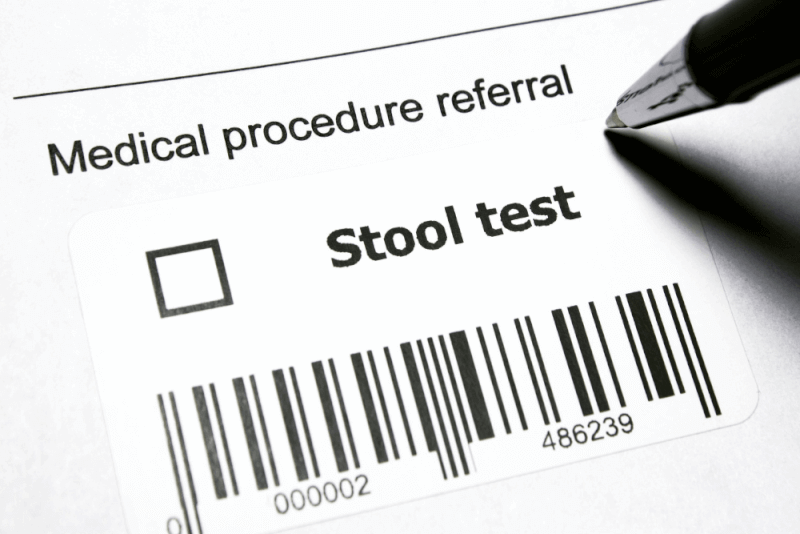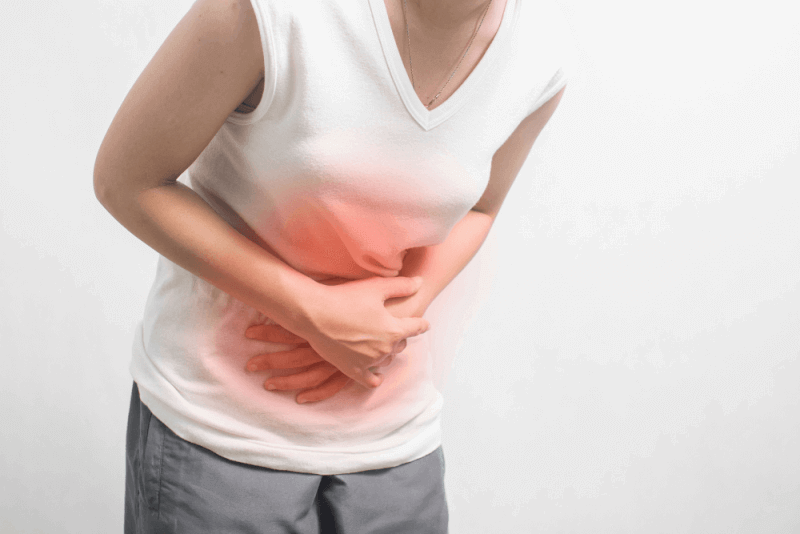What is an ulcer?
A stomach ulcer is an open sore that forms when stomach acid erodes the protective lining of the stomach. The characteristic symptoms include stomach burning, pain, and indigestion. The ulcer heals when the cause is removed.
In the case of an ulcer, which is a common cause of focal stomach pain, patients feel the pain in a specific point of the stomach, and this pain is gnawing in nature. Besides this, it does not cause visible symptoms.
Ulcers are treatable medical conditions, but if left untreated for a long time, they can become chronic and serious. Some stomach ulcers can occasionally bleed, leading to anemia. In some patients, the sore can continue to progress until it perforates the stomach wall. In some cases, a stomach ulcer is also referred to as a peptic ulcer.
Symptoms of ulcers
The symptoms caused by ulcers include:
- Stomach burning
- Feeling of fullness
- Bloating
- Belching
- Reaction to fatty foods
- Heartburn
- Nausea
- Acid reflux
- Gas pain
In some people, ulcers do not cause any symptoms. These types of ulcers are called silent ulcers. In this case, patients do not have any complaints until complications develop. The possible symptoms when complications arise include:
- Pale skin
- Dizziness
- Fatigue
- Fainting
- Black stool
- Vomiting that looks like coffee grounds
- Sudden and severe abdominal pain
- Persistent abdominal pain
If these symptoms occur, you should consult a doctor as soon as possible.
Causes of stomach ulcers
Stomach ulcers are usually caused by H. Pylori bacterial infection. In addition, excessive use of NSAID drugs is also the most common cause after infection. Both causes account for 99% of treated stomach ulcer cases.
H. Pylori infection
This bacterium, which can affect people worldwide, is one of the most common bacterial infections. These bacteria, which mainly live in the stomach, do not cause any problems in a significant portion of people. However, excessive population growth allows them to take control and cause inflammation in the stomach lining.
NSAIDs
Non-steroidal anti-inflammatory drugs include commonly used over-the-counter pain relievers such as naproxen, ibuprofen, and aspirin. When these drugs come into contact with the stomach lining, they cause irritation. Additionally, they hinder the function of certain chemicals responsible for protecting the stomach lining.
Normally, the stomach lining can counteract these problems. However, frequent use of pain relievers prevents adequate time for repair. Furthermore, the more the lining erodes, the more resources are needed for recovery.
Other causes
Other causes that can lead to stomach ulcers include:
- Although rare, stomach infections caused by bacteria, viruses, and fungi can also cause ulcers.
- Zollinger-Ellison syndrome causes the stomach to produce more acid than usual, which can erode the stomach lining.
- Ulcers can also develop during recovery periods after severe physical stress, such as injury or serious illness. Severe physical stress changes the pH balance, making the stomach more acidic.
Ulcer diagnosis criteria
To diagnose a stomach ulcer, it is first necessary to inquire about the patient's medical history and investigate whether frequent NSAID use is present. Additionally, it is necessary to determine if there is a history of H. Pylori infection. If the symptoms point to an ulcer, the inside of the stomach needs to be examined.
Tests that can be applied to examine the inside of the stomach include:
- Endoscopy
- Upper GI X-ray series
Conditions that can be confused with a stomach ulcer
Conditions that can resemble the symptoms caused by a stomach ulcer include:
- Chronic acid reflux symptoms include stomach pain, heartburn, and nausea.
- In the absence of a clear cause, chronic indigestion can have similar symptoms. However, since acid does not cause the symptoms, lesions do not appear in the stomach lining.
- Stomach cancer, although rare, can cause ulcer-like symptoms.
Ulcer treatment
Eliminating the cause of the ulcer usually allows the ulcer to heal on its own. For example, an ulcer caused by NSAIDs heals on its own when the medication is stopped.
If an H. Pylori infection is present, antibiotics are necessary. In addition, medications that help reduce stomach acid and accelerate healing may be prescribed.
Medications
Medication combinations can be used to treat stomach ulcers, protect the stomach lining, and control stomach acid. If H. Pylori infection is present, the prescribed medication groups may include:
- Tetracycline
- Metronidazole
- Clarithromycin
- Amoxicillin
Cytoprotective drugs are used to protect and coat the stomach lining. These drugs are generally used to treat ulcers caused by NSAID use. Commonly prescribed drug groups include:
- Sucralfate
- Misoprostol
- Bismuth subsalicylate
Drugs that prevent the production of stomach acid are also among the drugs that can be used in the treatment of ulcers. Commonly prescribed histamine receptor blockers include:
- Famotidine
- Cimetidine
- Nizatidine
Proton pump inhibitors, which help reduce stomach acid and coat the stomach lining, are also among the drugs used for stomach ulcers. Commonly prescribed drugs in this group include:
- Esomeprazole
- Dexlansoprazole
- Lansoprazole
- Omeprazole
- Pantoprazole
- Rabeprazole
Ulcer surgery
If the patient has a complicated ulcer, direct treatment options should be considered. These treatments can be applied during endoscopy. Medication injection or cauterization can be done to stop the bleeding. If there is a perforation in the stomach, it should be sutured.
Although rare, some patients may have persistent or recurring ulcers. In this case, scar tissue and chronic pain may occur in the stomach. The formed scar tissue may even cause the stomach to close. In such cases, surgery is recommended for patients. These surgeries include:
- Pyloroplasty to remove scar tissue
- Vagotomy to cut the nerve that triggers stomach acid
Diet in ulcers
In case of a stomach ulcer, patients are advised to regulate their diet as a priority. The foods consumed can exacerbate the symptoms caused by the ulcer.
Foods to avoid in stomach ulcers
In stomach ulcers, it is essential to avoid spicy and acidic foods. In addition, the foods that should be removed from the diet include:
- Dairy products
- Fatty foods
- Caffeinated and decaffeinated coffee
- Pastries with high hydrogenated fat content
- Cream soups
- Citrus fruits
- Chocolate
- Milk desserts
- Fatty red meats
- Fried foods
- Sauces with high sodium content
- Pineapple
- Processed meats
- Salad dressings
- Chili pepper
- Tomatoes
- Alcohol
- Black tea
- Green tea
Foods that can be consumed in stomach ulcers
Following a light diet during the treatment process of a stomach ulcer will aid recovery. Therefore, it is essential to prioritize foods rich in soluble and insoluble fiber in the diet. Fiber reduces the secretion of stomach acid. Foods rich in vitamin A have a similar effect.
In addition, probiotic foods prevent H. Pylori bacteria from binding to the stomach lining. Probiotic-rich foods include pickled vegetables, yogurt, and kefir.
Foods rich in flavonoids also prevent the proliferation of H. Pylori bacteria in the intestines. This substance is found in fruits and vegetables.
In the presence of a stomach ulcer, foods that can be added to the diet include:
- Legumes
- Eggs
- Fatty fish
- Fruits rich in fiber such as bananas and strawberries
- Foods rich in flavonoids such as celery, cranberries, and cabbage
- Leafy greens rich in vitamin A
- Orange and yellow vegetables like sweet potatoes and squash
- Fermented foods like pickles and kimchi
- Lean meats and poultry
- Nuts
- Vegetables like beets, carrots, and broccoli
- Whole wheat
- Whole grains like brown rice
- Yogurt








